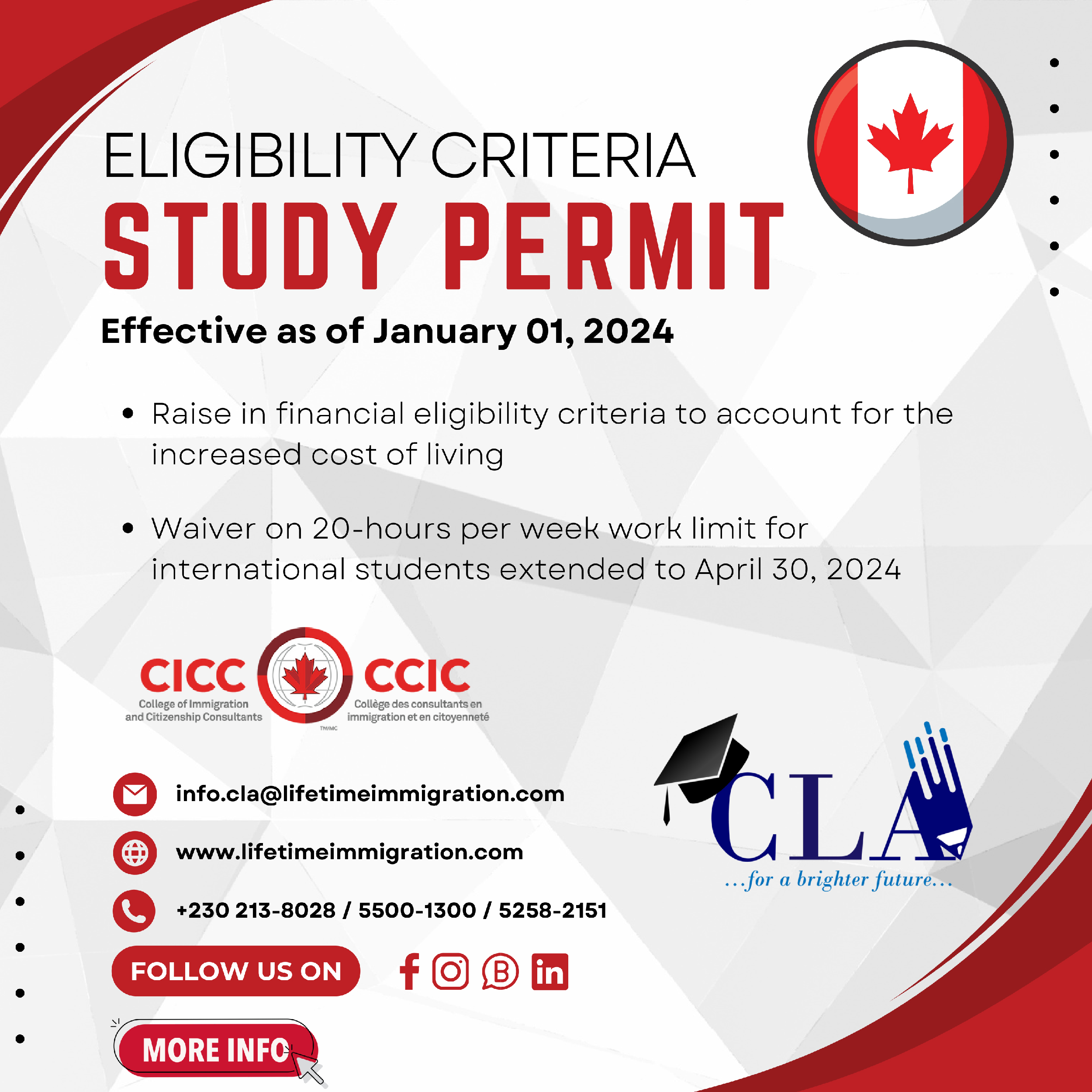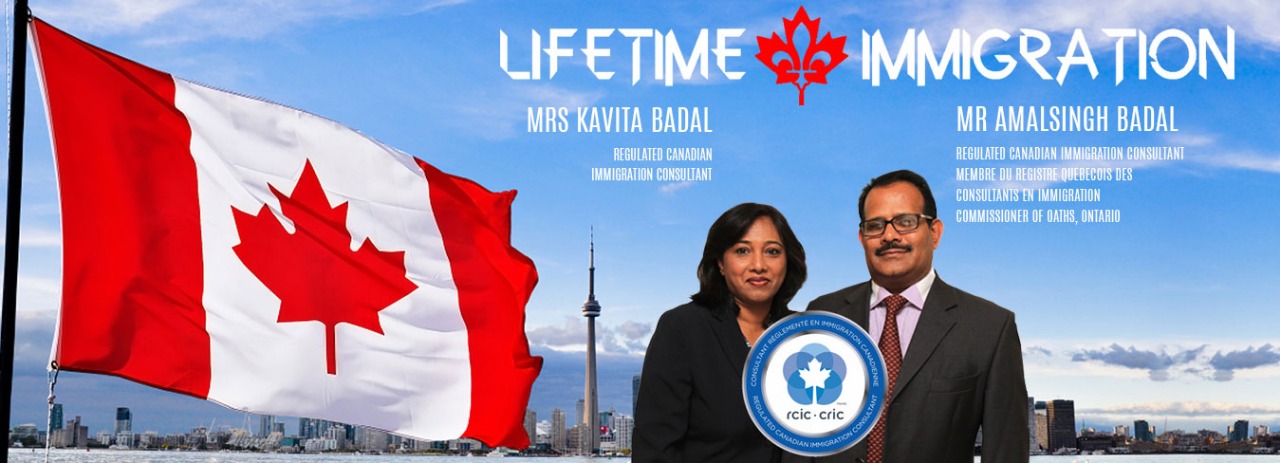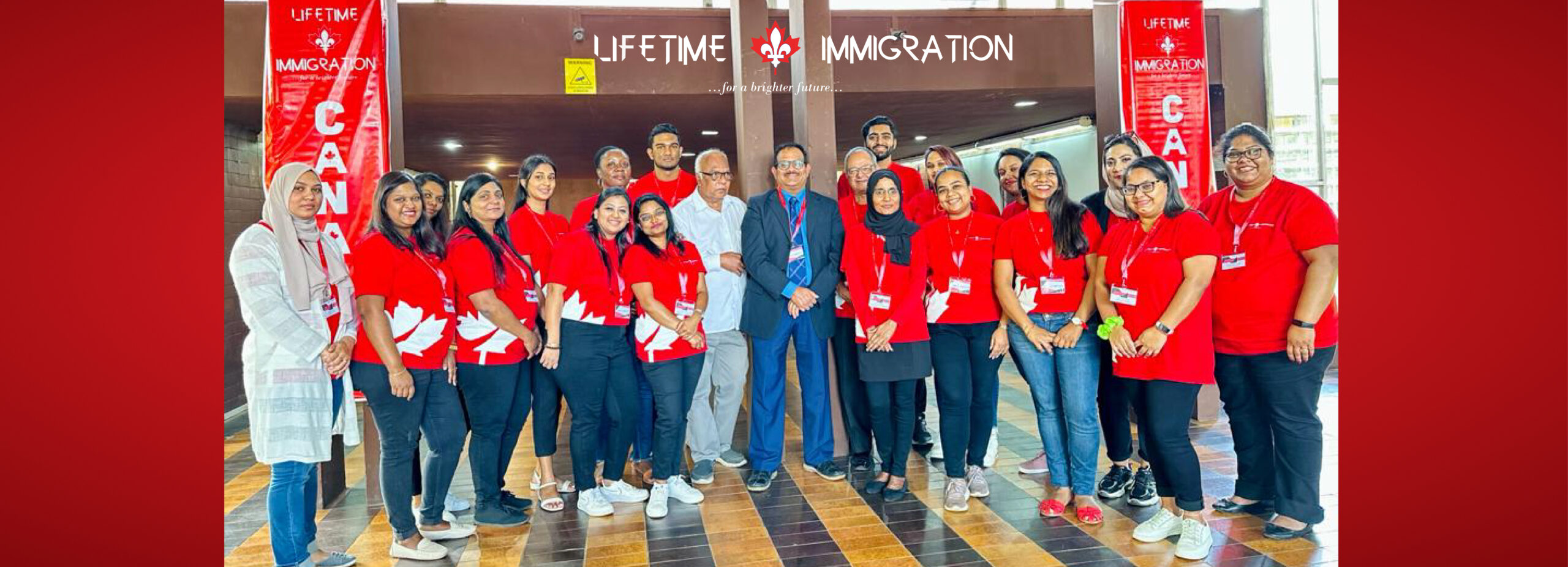
Study Permit Eligibility Criteria- Effective Jan 2024
IRCC is set to raise the financial eligibility criteria for study permit applicants to account for increased living expenses.
Immigration, Refugees, and Citizenship Canada (IRCC) will be implementing an increase in the
cost-of-living prerequisite for study permit applicants, effective January 1, 2024.
Commencing on January 1st, the updated cost-of-living criterion for individual study permit
applicants will be set at $20,635. This amount, which is over twice the existing requirement of
$10,000 introduced in the early 2000s and unchanged since is separate from the initial year’s
tuition and travel expenditures. This adjustment will be applicable to study permit applications
received on or after January 1st.
IRCC is increasing the cost-of-living requirement for study permit applicants from January 1,
2024, stating that the current criteria have not kept up with Canada’s rising living costs. The new
requirement is set at $20,635 for single applicants, more than double the previous amount of
$10,000 established in the early 2000s.
Notably, the cost-of-living standard will be annually adjusted based on Statistics Canada’s lowincome
cut-off (LICO). This benchmark ensures individuals have sufficient income for basic
needs without compromising a significant portion of their earnings.
In addition to the adjustment in the cost-of-living requirement, IRCC has announced the
extension of the waiver on the 20-hour per week work limit for international students, effective
until April 30, 2024. This extension applies exclusively to students who are currently in Canada
and those who have submitted a study permit application by December 7, 2023.
Originally introduced on November 15, 2022, with an initial end date of December 31, 2023, this
measure provides eligible students with the flexibility to engage in employment for more than the
standard 20 hours per week during academic sessions.
Students in Canada may qualify for employment while studying if they meet
the following criteria:
Possess a valid study permit.
Enrolled full-time at a designated learning institution.
Maintain satisfactory academic standing, as determined by the institution.
Pursue a program of academic, vocational, or professional training lasting at least six
months, leading to a degree, diploma, or certificate.
Hold a Social Insurance Number (SIN).
Moreover, during today’s press conference, Minister Miller disclosed two announcements related
to the Post-Graduation Work Permit (PGWP).
Initially introduced, the provision permitting international students to include online study terms in
their calculation for the Post-Graduation Work Permit (PGWP), as long as it constitutes less than
half of the total program duration, will be extended until September 1, 2024.
Furthermore, the second announcement clarifies that there will be no additional special
extensions for Post-Graduation Work Permits (PGWPs). The Canadian government had
previously employed a temporary policy on three occasions, granting an 18-month extension to
PGWPs. While those eligible under the most recent extension policy (with work permits expiring
as of December 31, 2023) may apply, IRCC has confirmed that there will be no further
extensions for PGWPs beyond this specified period.
Don’t forget to sign up!
Stay informed on our latest news!
- 74 Burgby Avenue, Brampton, Ontario, L6X 3A4, Canada
- 2nd Floor, Popular Printing Building, 12 Leoville L'homme Street, Port Louis, Mauritius
- +16472236314
- +23052519739/+23052582151
- info@lifetimeimmigration.com



 Canada : + 1 647 223 6314
Canada : + 1 647 223 6314